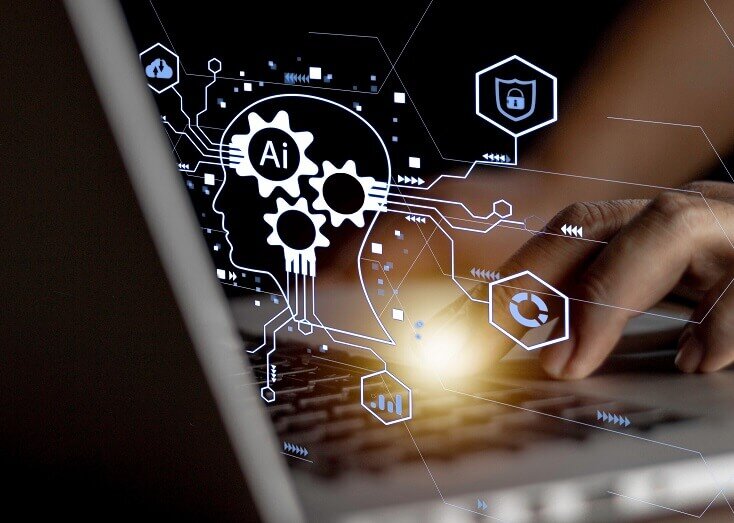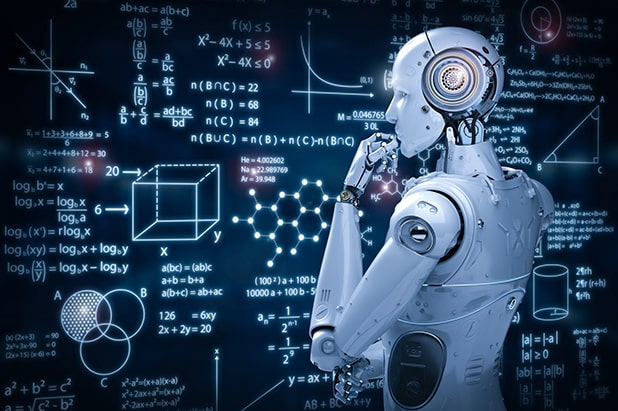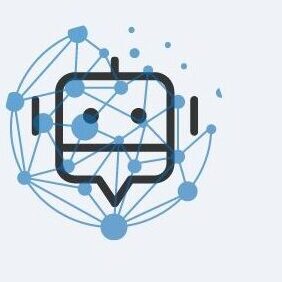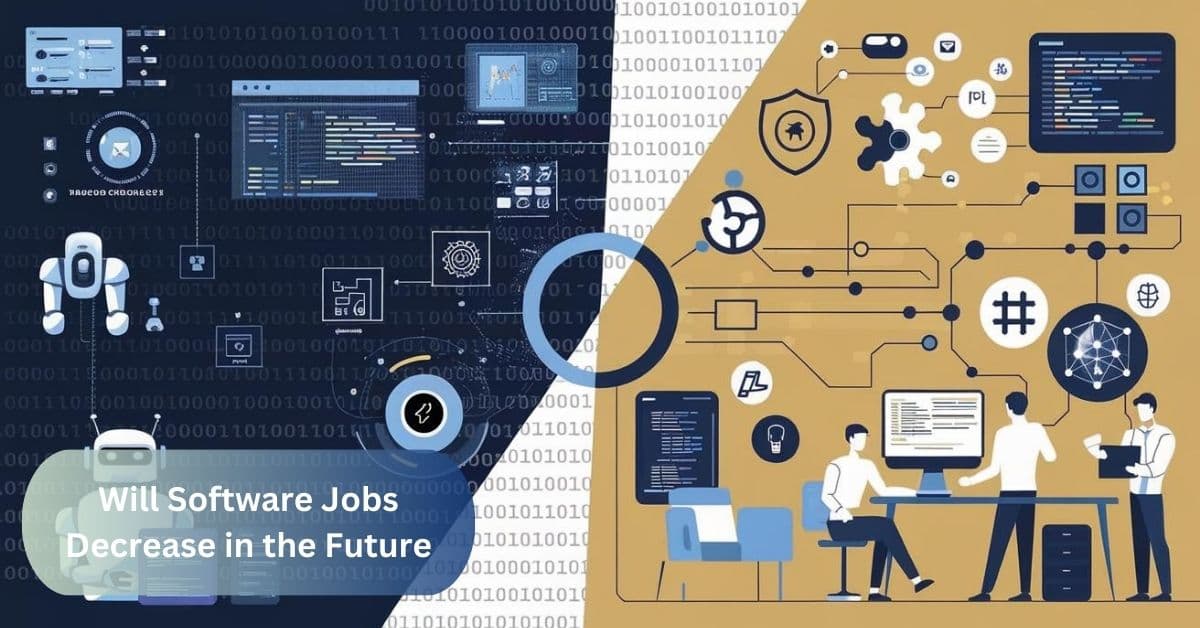The software industry has long been a driver of innovation, economic growth, and career opportunities. With the rise of automation, artificial intelligence (AI), and shifting economic trends, questions about the future of software jobs have become increasingly common. Will software jobs decrease in the future? Or will new roles and opportunities emerge, balancing or even surpassing current job levels?
In this in-depth article, we’ll explore the evolving landscape of software jobs, analyzing potential threats and opportunities in this dynamic field.
The Current State of Software Jobs:
1. Software Industry Overview
The software industry is one of the largest and fastest-growing sectors globally, driven by the demand for digital transformation across businesses, governments, and consumers. In 2024, software developers, engineers, and architects remain among the most sought-after professionals. This is due to the increasing reliance on software in fields such as healthcare, finance, retail, education, and entertainment.
2. The Role of Software Engineers
Software engineers are the backbone of technological advancements. They design, develop, and maintain applications, systems, and infrastructure that support everything from mobile apps to cloud platforms. As long as businesses seek to streamline processes and enhance customer experiences, the need for skilled software developers will persist.

However, as technology advances, particularly in areas such as AI and automation, concerns have surfaced about whether these innovations could replace software jobs in the long term.
Emerging Technologies Impacting Software Jobs:
1. Automation and AI
How Automation and AI Are Reshaping the Industry
One of the main factors fueling the conversation about the potential decrease in software jobs is the rise of automation and AI. These technologies are designed to handle repetitive, complex tasks more efficiently than humans. For instance, machine learning algorithms can write basic code, reducing the need for manual coding in some areas.
2. Threats to Entry-Level Roles
Automation tools, like low-code and no-code platforms, make it easier for non-technical users to build software applications without needing extensive programming skills. This has raised concerns about the future of entry-level software engineering jobs, as businesses may rely on automation to perform tasks that were once reserved for junior developers.
3. AI’s Role in Software Development
AI tools such as GitHub Copilot and DeepMind’s AlphaCode are being developed to assist developers by automating code generation and debugging. While these tools boost productivity, there is a fear that they could eventually reduce the number of coding jobs by automating parts of the development process.

Insight: While AI can optimize workflows, it is unlikely to fully replace the need for human engineers. Engineers play a critical role in overseeing AI tools, ensuring they function as intended, and making ethical decisions, which machines cannot replicate.
Globalization and Outsourcing:
1. Global Competition for Software Jobs
Globalization has significantly impacted the software industry, particularly when it comes to outsourcing. Companies often outsource development projects to countries where labor costs are lower. This trend has raised concerns that software jobs in higher-wage countries like the U.S. may decline due to global competition.
However, the rise of remote work has also opened up opportunities for U.S.-based software developers to collaborate with international teams or work for global companies. The accessibility of talent has made the software industry more inclusive and expansive.
Economic Uncertainty and Layoffs:
1. Impact of Recessions on Software Jobs
Economic downturns, such as the COVID-19 pandemic or financial recessions, can also influence the job market in the software industry. Companies may reduce hiring, cut budgets for software projects, or even lay off employees during uncertain times. However, software engineers tend to be more resilient to these challenges than many other professions due to the essential nature of their work in keeping businesses operational and competitive.
2. Recent Tech Layoffs

In recent years, several large tech companies have announced layoffs due to financial challenges or restructuring efforts. Despite this, the demand for software jobs has remained relatively stable, with industries like cybersecurity, cloud computing, and data science continuing to experience growth.
The Future of Software Jobs:
1. Cloud Computing and DevOps
Cloud computing is one of the most rapidly growing sectors, as more businesses migrate their operations to cloud platforms. This shift has created a strong demand for cloud engineers and DevOps specialists who can manage infrastructure, scalability, and security in cloud environments.
2. Cybersecurity
As digital threats become more sophisticated, the need for cybersecurity professionals is rising. In fact, the demand for cybersecurity experts often outpaces supply, offering excellent job security for software professionals who specialize in this field.
3. AI and Machine Learning Engineers

AI development itself has become a major area of growth. While AI and machine learning (ML) may threaten some job sectors, they also create demand for engineers skilled in building, training, and maintaining AI systems. This niche, high-skill role is unlikely to see job decreases anytime soon.
The Shift Toward Specialized Skills:
1. Specialized Knowledge vs. General Software Development
The future job market in software is likely to reward those who focus on specialized, high-demand skills, such as AI, cybersecurity, and cloud computing. General software development roles may experience pressure due to automation, but developers who pivot to niche areas will remain highly competitive.
2. Lifelong Learning and Adaptability
One trend that’s clear for software engineers is the necessity of continuous learning. The fast pace of technological advancement means that software professionals must stay updated on the latest tools, frameworks, and programming languages. Lifelong learning and adaptability will be crucial to sustaining a career in software development.
New Job Opportunities and the Human Factor:

1. Roles in Ethics, Oversight, and AI Governance
While AI may replace some traditional software roles, new positions will emerge in AI ethics, governance, and regulation. These jobs will require human oversight to ensure AI systems are ethical, unbiased, and compliant with legal standards.
2. Human Creativity and Complex Problem-Solving
AI may be able to automate simple coding tasks, but it lacks the creativity and nuanced problem-solving skills that human developers bring to the table. Complex software projects, especially those requiring innovative thinking, will continue to rely on human engineers.
FAQ’s
1. Will automation replace all software jobs?
No, automation is unlikely to replace all software jobs. While automation can handle repetitive tasks, complex software development and problem-solving require human input, creativity, and oversight.
2. What skills should I focus on to stay competitive in the software industry?
Focusing on high-demand areas like AI, cybersecurity, cloud computing, and DevOps can help you stay competitive in the evolving job market.
3. Is outsourcing a major threat to U.S. software jobs?
Outsourcing may impact some U.S. jobs, but remote work and the demand for specialized skills have created opportunities for U.S.-based software developers to work for global companies.
4. How will AI impact software development jobs?
AI will automate some tasks, like code generation and debugging, but it will also create new opportunities for developers in AI ethics, governance, and specialized AI engineering.
5. Will entry-level software jobs disappear?
Some entry-level jobs may be affected by automation, but there will still be a need for junior developers to handle more complex tasks and projects that machines cannot manage.
6. Is the software industry recession-proof?
While the software industry is not entirely recession-proof, it tends to be more resilient than other sectors due to the essential nature of technology in business operations.
7. What programming languages will be in demand in the future?
Languages like Python, JavaScript, and Go are expected to remain in high demand, especially in fields like AI, cloud computing, and web development.
8. Will remote work continue to impact software jobs?
Yes, remote work has expanded opportunities for software professionals, allowing them to work with global companies and collaborate across borders.
9. How can software engineers future-proof their careers?
To future-proof your career, focus on continuous learning, specialize in high-demand areas, and stay adaptable to emerging technologies and trends.
Final Thoughts:
While there are undeniable pressures on certain sectors within software engineering, the overall outlook for software jobs remains positive. Automation and AI may reduce demand for some low-skill positions, but they are also creating new opportunities for specialized, high-skill roles. The ongoing need for cloud computing, cybersecurity, and AI development ensures that software engineers with the right skill sets will remain in demand.

